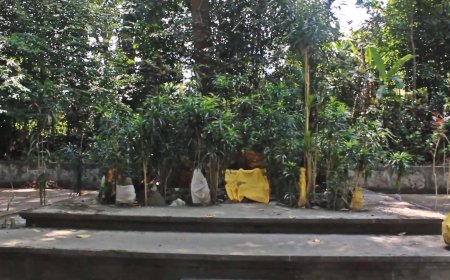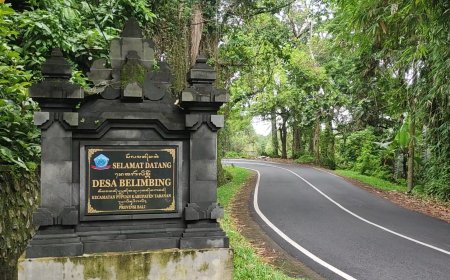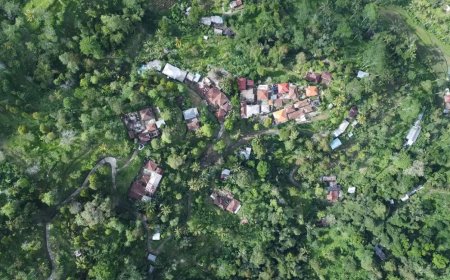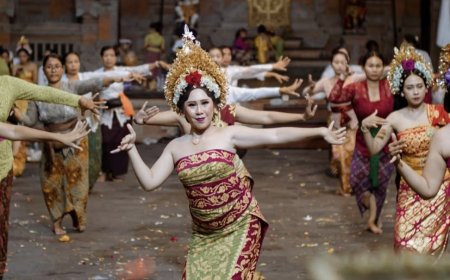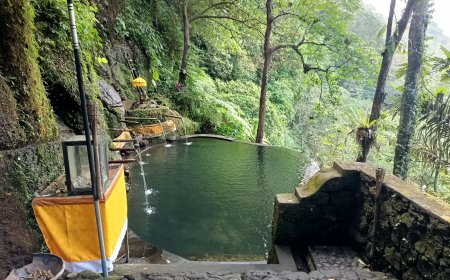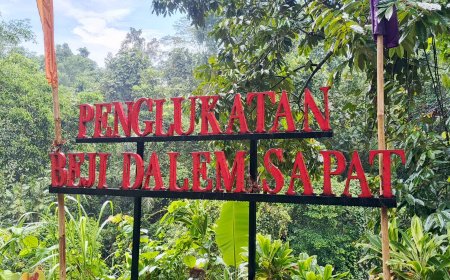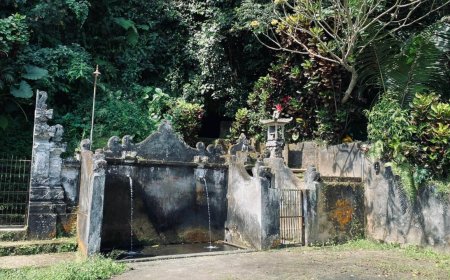The Uniqueness of Batu Jineng Temple: A Sacred Water Source in the Heart of Sudimara Village
Beji Batu Jineng Temple, nestled in the heart of Sudimara Village, is a spiritual and cultural jewel revered for its sacred spring and historical significance. Surrounded by a majestic banyan tree enveloping the iconic Batu Jineng stone, the temple symbolizes harmony and balance, deeply rooted in the beliefs of the local community. Its healing waters, believed to flow from Mount Batukaru, hold both spiritual and practical value, offering blessings, purification, and sustenance to villagers and visitors alike. As a center of rituals, legends, and communal life, the temple stands as a testament to the enduring connection between nature, culture, and spirituality.
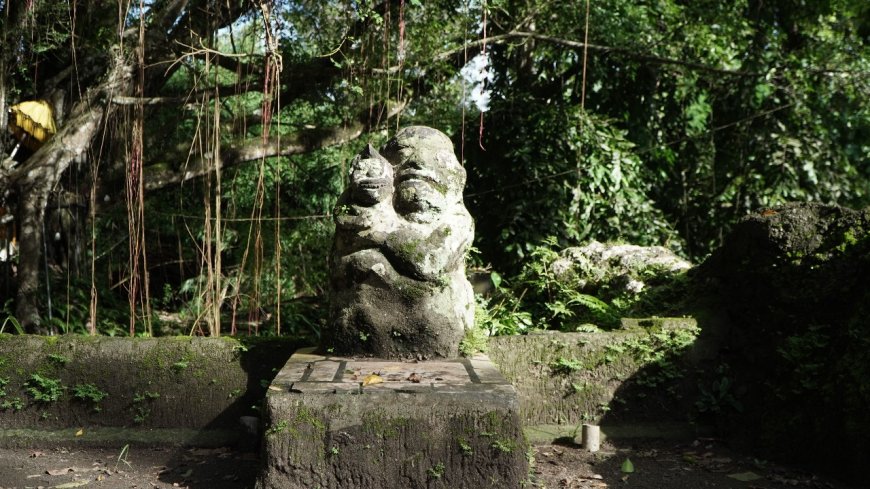
Beji Batu Jineng Temple, located in Banjar Adat Sudimara Kelod, Sudimara Village, Tabanan Regency, holds a deep spiritual and historical importance for the local community. The temple is named after a large stone known as Batu Jineng, which has been overgrown by a sacred banyan tree. This stone is believed to be the dwelling place of Yang Dukuh Sakti, the guardian spirit of the Yeh Empas River, making it a central spiritual site for the surrounding area. For generations, the people of Sudimara have revered this temple as an essential place of worship and community gathering.
I Gusti Ketut Putra Hariyana, a descendant of I Gusti Ketut Jelun and a traditional leader in the village, explains that a natural spring near Batu Jineng is believed to originate from Mount Batukaru. The water from this spring is considered sacred by the locals and plays a central role in their religious rituals. Initially, the spring water was channeled through bamboo pipes, but later, makeshift spouts made from cut bottles were used. The temple has two fountains, known as Lanang and Istri, which are separated by Beji Temple, symbolizing balance and harmony. This duality reflects the sacred balance of masculine and feminine energies essential for the well-being of the community.
The water from Beji Batu Jineng is not only used for rituals but is also believed to have healing properties. Many visitors come from outside the village to partake in melukat and collect the water for ceremonial purposes. Locals believe that the water cleanses the body and spirit, removing negative energy and restoring balance. It is also used as a primary source of drinking water by the villagers, who praise its purity and quality. The exceptional qualities of this water make it an important resource for both spiritual and practical needs.
Access to the temple was once challenging due to steep and rocky paths, but recent improvements to infrastructure have made it more accessible. The Tabanan Regency government has invested in the development of roads leading to the temple, making it easier for both residents and visitors to reach this spiritual site. These improvements reflect the local government’s commitment to preserving important cultural and spiritual landmarks. The increased accessibility has encouraged more visitors to explore the temple and its surroundings, further strengthening its role as a hub for both spiritual growth and community engagement.
Beji Batu Jineng Temple is also the center of many fascinating local stories. One such tale involves Pekak Rendi, a resident who experienced a divine revelation at the temple. Following this vision, he was miraculously able to lift an enormous stone mortar an act that would typically require the strength of four people. This extraordinary event is viewed as a blessing from the temple and continues to inspire the local community. Pekak Rendi’s story is an example of the spiritual power attributed to Beji Batu Jineng, and it remains an important part of the temple’s rich history.
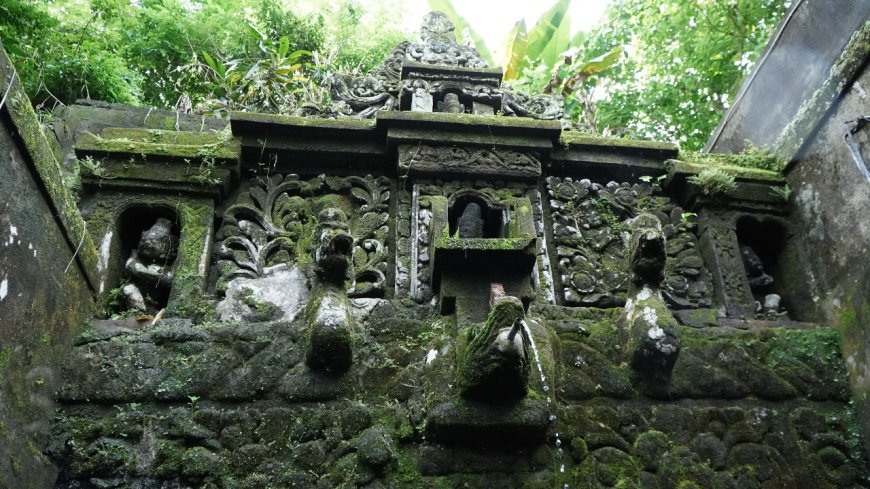
Beji Batu Jineng Temple (Photo Source: Editor's Collection)
Another noteworthy feature of the temple is its water fountains, which sometimes appear dormant but still produce the sound of flowing water. This phenomenon is considered a miraculous sign of the temple's spiritual potency. The community believes that this unusual occurrence serves as a reminder of the temple’s sacred connection to the divine. The flowing water, even when still, symbolizes the continuous and ever-present energy of the temple, a vital force that sustains both the spiritual and physical needs of the village.
The temple’s piodalan ceremony, held every six months on Tumpek Bubuh, is one of the most important events for the residents of Sudimara. During this ceremony, the community gathers to give thanks to the deities enshrined at Beji Batu Jineng. The piodalan is not only a religious observance but also a communal event that brings the villagers together to clean the temple, make offerings, and strengthen their spiritual bonds. This collective effort reflects the community’s deep devotion to preserving the temple and its traditions, as well as their commitment to supporting each other in their spiritual journeys.
In addition to the piodalan, the temple plays a vital role in other important ceremonies, such as tooth-filing rituals, weddings, and various rites of passage. The sacred water from Beji Batu Jineng is an integral part of these ceremonies, underscoring the temple’s essential role in the spiritual life of the village. Through these rituals, the community reaffirms its connection to the divine and its cultural heritage, ensuring that these traditions are passed down to future generations.
The presence of Beji Batu Jineng Temple has a profound impact on the daily lives of the locals. The water from the spring is used not only for ceremonial purposes but also for everyday activities like drinking, bathing, and washing. Its purity is considered a reflection of the temple’s spiritual sanctity, and many people attribute their good health and well being to the blessings of the temple’s water. The temple has become an integral part of village life, providing both practical and spiritual sustenance.
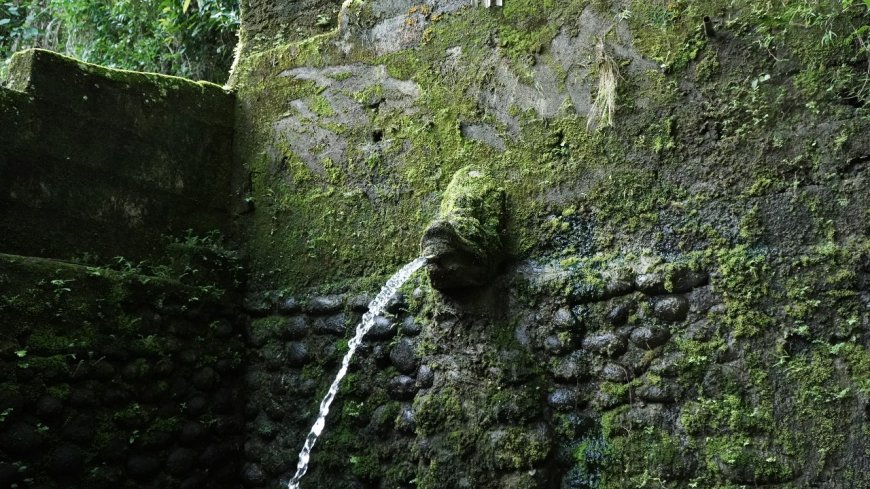
Beji Batu Jineng Temple (Photo Source: Editor's Collection)
Over time, the temple has also become a popular destination for spiritual tourism. Visitors come to meditate, enjoy the peaceful surroundings, and experience the healing energy of the sacred water. This influx of visitors has provided new economic opportunities for the local community, with villagers selling agricultural products and handmade crafts to tourists. The growth of spiritual tourism has helped to sustain the village’s economy, while also increasing awareness of the temple’s cultural and spiritual significance.
The villagers remain dedicated to maintaining the temple’s sanctity. Monthly cleaning sessions are held to ensure that the temple remains pristine, and the community works together to preserve its sacred atmosphere. The local government continues to support the temple’s preservation by improving infrastructure and ensuring that the temple remains accessible to all who wish to visit. These efforts help ensure that Beji Batu Jineng Temple remains a cherished spiritual and cultural landmark for future generations.
In conclusion, Beji Batu Jineng Temple is more than just a place of worship, it is a cornerstone of spiritual and community life in Sudimara Village. With its sacred spring, rich history, and powerful spiritual energy, the temple plays a crucial role in the well-being of the local community. It serves as a place of healing, reflection, and connection to the divine. As the temple continues to be preserved and revered, it will undoubtedly remain a key cultural and spiritual landmark for years to come.
